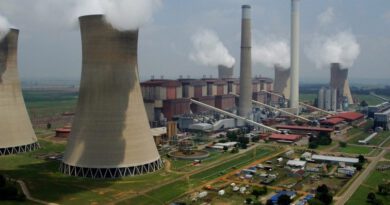Sanral lashes out at Outa for undermining efforts to secure road maintenance funding
The SA National Roads Agency (Sanral) has lashed out at its detractors, including the Organisation Undoing Tax Abuse (Outa), claiming national efforts to secure funding for the maintenance of South Africa’s high-quality road network were being undermined by narrow-minded groups that encouraged people to break the law.
Skhumbuzo Macozoma, the chief executive of Sanral, stressed it was time the government and the citizens of South Africa held Outa to account for the civil disobedience campaigns that were contributing to the long-term destruction of critical road infrastructure.
Macozoma added it was outrageous that an organisation such as Outa could criticise a decision by the New Development Bank (NDB) to extend a R7bn loan for road infrastructure development projects.
“Outa’s malicious actions are designed to destroy Sanral and deprive South African citizens of world-class national road infrastructure,” he said.
Wayne Duvenage, the chief executive of Outa, said the organisation found it “quite amusing” that Macozoma has blamed the civil action organisation for Sanral’s dire financial situation.
“The problem with Sanral is their continuous lack of transparency to enable the public – who are ultimately going to pay for Sanral’s loans – to clearly understand what this latest R7bn loan is being borrowed for,” said Duvenage.
Sanral’s attack on Outa was sparked by the organisation expressing concern that Sanral had taken out another R7 billion loan, thereby entrenching itself deeper in debt when the agency already had “a sizeable interest-bearing debt of R47 billion”.
Macozoma said Sanral was doing its best in tough economic conditions and unfavourable bond markets to secure funding for road development.
Macozoma said the loan from the NDB showed international confidence in Sanral’s capabilities despite the destructive comments from Outa.
He said Outa and other special interest groups have led an illegal civil disobedience campaign to encourage citizens not to comply with their legal obligations to pay e-tolls.
“It is thanks to them the level of non-compliance on the network is low and the much-needed extension of the Gauteng freeway network cannot proceed,” he said.
However, the results of research conducted by the Automobile Association (AA) released last month revealed that more than 52% of motorists indicated there was nothing government could do to convince them to start paying their e-tolls on the Gauteng Freeway Improvement Project (GFIP), with 78.4% of motorists citing government corruption as the reason for deciding not to pay their e-tolls.
President Cyril Ramaphosa established a task team led by transport minister Fikile Mbalula that had to report to him by the end of last month on the options with regard to e-tolls.
Macozoma said the funds from the NDB will enable Sanral to bring forward much-needed improvements to toll road infrastructure across the country, which were delayed because of the declining income for the GFIP.
He said Sanral continued to look for more funding options to address the backlog of R140bn in toll roads projects that were currently without funding.
Duvenage said what the public required was transparency on why the NDB loan was needed, especially in light of the fact the NDB statement said this funding was being applied to the National Toll Roads Strengthening and Improvement Programme.
“As far as we are concerned, funding for tolled roads comes from the collection of tolls on those road networks and we would like to know if this funding is going toward the GFIP bonds (for e-tolled roads) or other Sanral-managed toll roads that are supposed to be self-funding.
“We don’t believe these funds are being allocated to the concessionaire tolled routes (N3TC, Bakwena and TRAC) and would be extremely concerned if this was the case,” he said.
Duvenage added that the NDB statement on the Sanral loan stated that the scope of the project included rehabilitation of the pavement for the existing toll sections of national roads, construction of additional lanes to widen such roads, and rehabilitation of related infrastructure, such as bridges and intersections.
He said this indicated that some of the funding may be for routine maintenance of existing toll roads, which Outa believed should be covered by the existing toll collections.
But Macozoma said Outa had through its statements once again demonstrated its very poor knowledge of toll road management and road network management in general.
Macozoma said Outa failed to understand that toll schemes are financed through upfront capital that is mobilised from investors for road road improvements and are then funded through road user charges over the lifetime of a road.
“To argue that users are paying toll fees and that Sanral should not be borrowing further funds is evidence of a lack of knowledge by an organisation that has its own questionable track record on governance and financial issues,” he said.
Sanral last month reported it would issue major road construction tenders to the value of more than R40 billion to the construction sector over the next two to three years and announced last week it would put out to tender contracts worth billions of rands for the upgrading of the N2 and N3 “over the ensuing weeks”.
It said these tenders included the upgrading of the N2 from Kwamashu Interchange to Mhloti Interchange, upgrading of the N3 from Cato Ridge to Dardanells and from Dardanells to Lynnfield Interchange.
Source: moneyweb.co.za



